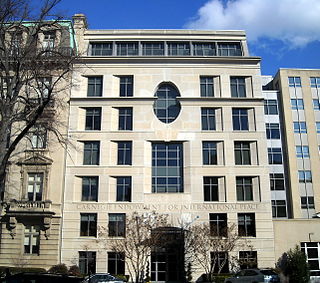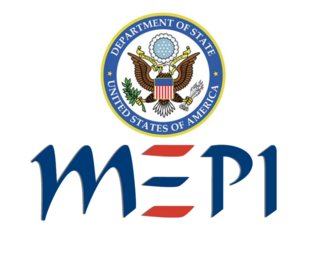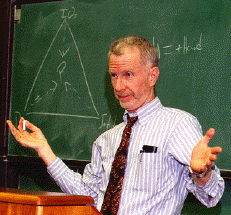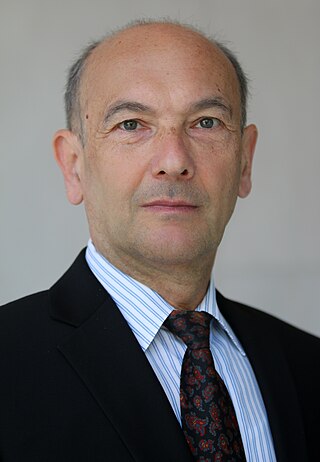See also
- Carnegie Endowment for International Peace, an international affairs think tank based in Washington, D.C., with offices in the Middle East, Europe, East Asia, and South Asia.
- Carnegie (disambiguation)
Carnegie Foundation may refer to:
Philanthropy is a form of altruism that consists of "private initiatives, for the public good, focusing on quality of life". Philanthropy contrasts with business initiatives, which are private initiatives for private good, focusing on material gain; and with government endeavors, which are public initiatives for public good, notably focusing on the provision of public services. A person who practices philanthropy is a philanthropist.
AFC may stand for:

The White House Fellows program is a non-partisan federal fellowship established via executive order by President Lyndon B. Johnson in October 1964. The fellowship is one of America’s most prestigious programs for leadership and public service, offering exceptional Americans first-hand experience working at the highest levels of the federal government. The fellowship was founded based upon a suggestion from John W. Gardner, then the president of Carnegie Corporation and later the sixth secretary of health, education, and welfare.

The Carnegie Endowment for International Peace (CEIP) is a nonpartisan international affairs think tank headquartered in Washington D.C., with operations in Europe, South and East Asia, and the Middle East as well as the United States. Founded in 1910 by Andrew Carnegie, the organization describes itself as being dedicated to advancing cooperation between countries, reducing global conflict, and promoting active international engagement between the United States and countries around the world. It engages leaders from multiple sectors and across the political spectrum.
Area studies are interdisciplinary fields of research and scholarship pertaining to particular geographical, national/federal, or cultural regions. The term exists primarily as a general description for what are, in the practice of scholarship, many heterogeneous fields of research, encompassing both the social sciences and the humanities. Typical area study programs involve international relations, strategic studies, history, political science, political economy, cultural studies, languages, geography, literature, and other related disciplines. In contrast to cultural studies, area studies often include diaspora and emigration from the area.
Carnegie may refer to:

The Carnegie Corporation of New York is a philanthropic fund established by Andrew Carnegie in 1911 to support education programs across the United States, and later the world.

The Social Science Research Council (SSRC) is a US-based, independent, international nonprofit organization dedicated to advancing research in the social sciences and related disciplines. Established in Manhattan in 1923, it maintains a headquarters in Brooklyn Heights with a staff of approximately 70, and small regional offices in other parts of the world.
Rupert Emerson was a professor of political science and international relations. He served on the faculty of Harvard University for forty-three years and served in various U.S government positions.
Alexander Kronemer is a writer, lecturer, and documentary filmmaker whose work focuses on religious diversity, Islam, and cross-cultural understanding. He is the co-founder and executive producer of Unity Productions Foundation. Alex Kronemer is the co-founder of Unity Productions Foundation (UPF), its Executive Director, and Executive Producer for all UPF Films. He is an internationally known speaker and has published numerous articles newspapers and journals in the US and abroad, including The Washington Post, Christian Science Monitor, the Huffington Post and in syndication in international publications as widespread as the UK, Indonesia, Egypt, and Pakistan. He frequently presents at 20,000 Dialogue events, and has appeared as a CNN commentator on several occasions. Mr. Kronemer has won numerous awards for his work in promoting peace and interfaith understanding. A graduate of Harvard Divinity School, he previously served in the U.S. Department of State’s Bureau of Human Rights and was one of the founding staff members who helped establish the U.S. Institute of Peace.
Paul Tiyambe Zeleza is a Malawian historian, literary critic, novelist, short-story writer and blogger at The Zeleza Post. He was (2009) president of the African Studies Association. He was the Vice-President for Academic Affairs at Quinnipiac University. He is the current Vice Chancellor of the United States International University Africa, located in Nairobi, Kenya.

The Asian Cultural Council (ACC) is a non-profit organization dedicated to advancing international cultural exchange between Asia and the U.S. and between the countries of Asia through the arts. Founded by John D. Rockefeller III in 1963, ACC has invested over $100 million in grants to artists and arts professionals representing 16 fields and 26 countries through over 6,000 exchanges. ACC supports $1.4 million in grants annually for individuals and organizations.

Geoffrey Kemp is a British-American academic and writer on international relations. He is the Director of Regional Strategic Programs at the Center for the National Interest, and has held posts in academia and in the U.S. Government.

The U.S.-Middle East Partnership Initiative (MEPI) is a United States State Department program that fosters meaningful and effective partnerships between citizens, civil society, the private sector, and governments in the Middle East and North Africa (MENA) region to resolve local challenges and promote shared interests in the areas of participatory governance and economic opportunity and reform.

The Centre for International Education and Research (CIER) evolved in the 1950s, at the University of Birmingham UK, in the context of the involvement of British academics in the new international educational role of the United Nations.

Sushma Joshi is a Nepali writer, filmmaker based in Kathmandu, Nepal. Her fiction and non-fiction deal with Nepal's civil conflict, as well as stories of globalization, migration and diaspora.

Bruce Martin Russett is Dean Acheson Professor of Political Science and Professor in International and Area Studies, MacMillan Center, Yale University, and edited the Journal of Conflict Resolution from 1972 to 2009.
Michael Dalzell Swaine is an expert in China and East Asian security studies. Swaine is a senior research fellow at the Quincy Institute for Responsible Statecraft. Prior to joining the Quincy Institute, Swaine was a Senior Associate in the Asia Program at the Carnegie Endowment for International Peace. Before joining the Carnegie Endowment as co-director of the China Program in 2001, Swaine worked for 12 years at the RAND Corporation, where he was appointed as the first recipient of the RAND Center for Asia-Pacific Policy Chair in Northeast Asian Security.

Igor Alexandrovich Zevelev is a Russian political scientist who has been a Global Fellow at the Wilson Center since 2020.

Keisha N. Blain is an American writer and scholar of American and African-American history. She is Professor of Africana Studies and History at Brown University. Blain served as president of the African American Intellectual History Society from 2017 to 2021. Blain is associated with the Charleston Syllabus social media movement.